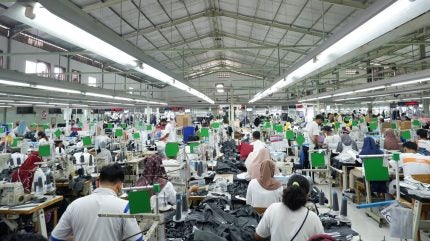
Steve Lamar, president and CEO of AAFA stated that the organisation’s members, along with their 3.5 million workers in the US, depend significantly on the efforts of the ILAB to ensure an equitable international environment for US employees and enterprises.
“ILAB, through its grants, technical assistance, and direct support, works to build institutions in countries around the world so that they can effectively raise labour standards and eliminate opportunities for less scrupulous foreign businesses to profit from labour abuses while American businesses and workers play by the rules. With today’s elimination of ILAB’s grants, we will be moving from an even playing field to an uphill battle,” added Lamar.
A leaked email obtained by The Washington Post revealed plans to halt 69 international programmes, which are funded by grants exceeding $500m.
These programmes are said to be instrumental in enforcing labour standards in 40 countries, including projects in regions such as Mexico, Central America, Southeast Asia, and Africa.
Some of the terminated contracts include:
· Initiatives titled “Global Better Work Program (I)” and “Better Work Global (II)” in nations such as Haiti (mandated by the Haiti HOPE/HELP legislation), Jordan (required by the U.S./Jordan Free Trade Agreement), Cambodia, Bangladesh, Indonesia, and Vietnam. These programmes were designed to enhance labour enforcement and transparency across various key global regions, contributing to an equitable competitive environment.
· A project known as “Supporting Safe and Inclusive Work Environments in Lesotho,” aimed at addressing and preventing violence against women.
· The “Research, Innovation and Strategic Engagement Project (RISE-global)” with activities in Brazil, Colombia, Cote D’Ivoire, Indonesia, and Guatemala. This project focused on educating workers about their rights and methods for safeguarding them.
· Efforts are being made to increase transparency and accountability within Uzbekistan’s cotton sector with the goal of eradicating forced labour and other labour malpractices.
· In Honduras, Guatemala, and El Salvador, programmes are being implemented to enhance workplace safety and overall working conditions as a strategy to reduce migration flows to the US.
AAFA noted that the ILAB engages in worker education through its grants, focusing on rights awareness and the eradication of forced labour.
Through the placement of labour attachés at US embassies and the development of networks in strategic nations, the bureau also facilitates the acquisition and exchange of intelligence and strategies to support worker rights, identify non-competitive practices, and uphold the stipulations of free trade accords.
Furthermore, the ILAB collaborates with US Customs and Border Protection to enforce labour clauses within trade agreements, aiming to maintain equitable conditions for American labourers.
AAFA policy senior vice president Nate Herman said: “ILAB’s work reflects the values of the American people and the Trump administration by putting American workers and businesses first.
“Eliminating all ILAB grants instead puts American workers and American businesses last, leading to unfair competition with countries and foreign businesses that are not held to the same laws and standards for labour abuses, forced labour, human trafficking, and child labour.”
AAFA’s reaction follows the signing of a group letter addressed to the United States Secretary of Labor Lori Chavez-DeRemer earlier this week.
This letter specifically calls for the reinstatement of an ILAB contract related to Uzbek cotton. It follows a broader appeal made on 11 March to safeguard ILAB’s operations.



